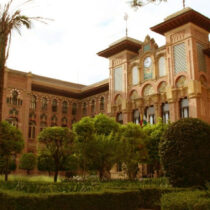Overall consideration of urban transformation during the mid-war period —as discussed in the previous article— leads us to the conclusion that full rehabilitation of the huge number of refugees was achieved in spite of the unfavourable conditions that prevailed both in the country’s finances and in the media. On the other hand, the negative effects of this matter should not be ignored. These are mainly the pernicious, for the planning of settlements in Athens in particular, interference of private entrepreneurial activity in the public sector, its interference with the Ministry of Public Works and the municipal authorities. The then head of the Architectural Service of the Municipality of Athens, in his unpublished diary describes the various unlawful efforts of companies, such as the construction company “Kypriadis-Kyriazis & Co.”, to ensure that the urban planning of private estates lying outside the approved city-plan should be undertaken by them. He makes a thorough reference to the pressure exercised on the heads of the Urban Planning Service at that time (early 1920s), to allow the owners of the estates to accomplish their objectives. In this way, an irrational and obviously destructive expansion of the city in all directions was initiated.
Private settlements of the mid-war period as an object of urban exploitation
21 Aug 2012
by Archaeology Newsroom
- A
- A
- A

